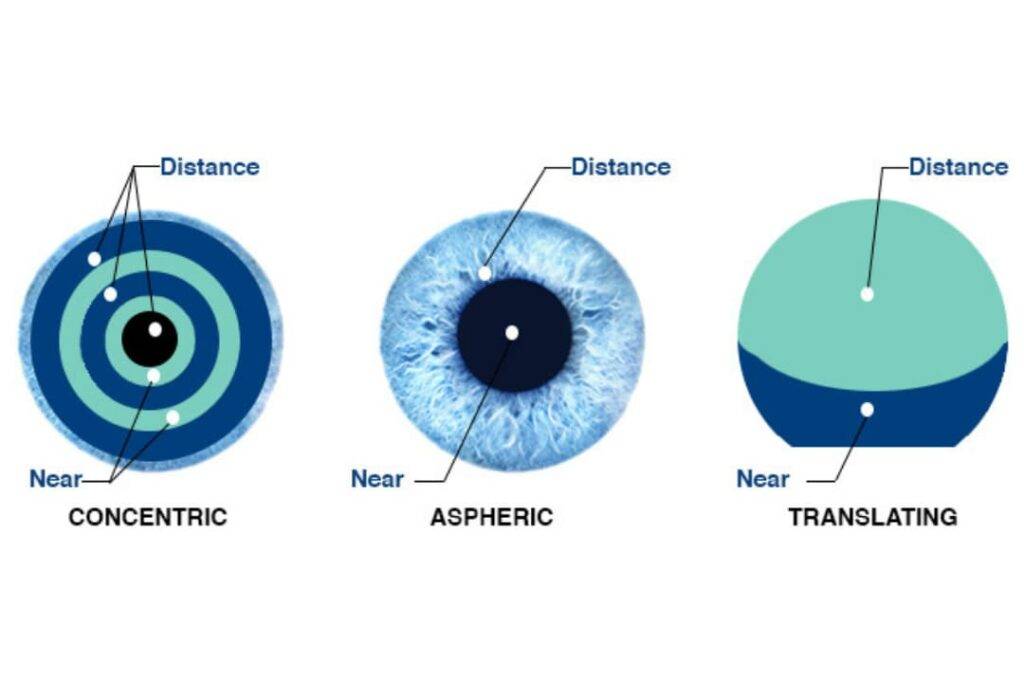How do multifocal contact lenses work for my needs? Is this a recurring question popping in your head everyday? Multifocal contact lenses are developed to allow different lens powers that focus vision at different distances from the wearer. You may doubt that this works or does it make sense for your eyesight? Let's explore multifocal contact lenses pros and cons and whether they’re right for you!

Multifocal contact lenses are advanced and they are different from regular contacts in that they have multiple prescriptions for each lens. Multifocal contact lenses help you see clearly at a range of distances, including near, intermediate, and far.
Multifocal contact lenses are designed with a number of different features to improve vision at all distances. Many feature concentric rings or aspheric design zones that allow for sharper vision across varying refractive error needs. Reading glasses or progressive glasses also have multiple prescriptions, but instead of having everything on one lens, they have separate areas for viewing distance and nearby objects.
How do you know if multifocal contacts are the best option for you? The following are some pros and cons to consider before and during your eye doctor visit.
Pros
Cons
People over the age of 40 frequently realise that focusing on items up close becomes difficult or impossible and that their near vision has blurred. Presbyopia is the term for this disorder, which develops gradually and spontaneously as people get older. Presbyopia is an unavoidable condition produced by the lens of the eye losing its suppleness, causing the lens to harden. Because light now focuses behind the retina instead of directly on it when reading, the eye is no longer able to focus on close things as a result of this hardening.
Together, these changes affect your ability to focus on nearby objects. But contact lenses can correct presbyopia by shifting the point at which light rays converge in front of the retina, allowing you to focus on close-up objects without difficulty.
If you're comfortable with monovision lenses, the best option for you is probably to wear them. They're cheaper than bifocals and multifocal and are more likely to avoid some of the blurriness associated with these contact lenses. Bifocal and multifocal contacts can cause some blurred vision at certain focal lengths, like when looking far away or close up. If you want full-time clarity, monovision lenses can be a good choice.
Some people who don't enjoy monovision or have tried it unsuccessfully might still be able to benefit from bifocal lenses that have multiple lens powers in one eye (like a regular bifocal) but only one lens power in the other eye. If your eyes are significantly different in terms of nearsightedness or farsightedness, this type of lens can provide better depth perception without as much blurriness as fully bifocal or multifocal contact lenses.
If neither type of lens appeals to you, then LASIK surgery might be your best option for correcting presbyopia. The surgeon will create separate corneal changes for each eye so that one is focused on objects up close while the other is focused on objects farther away; this allows both eyes to work together normally and even more clearly than before to help you see both distant and near objects well at all times. In addition to being safe, LASIK surgery has a very high satisfaction rate among those who choose it when compared with glasses or contacts for treating presbyopia
Before you start shopping around for lenses, talk to your eye doctor. They will help you determine what type of multifocal contact lenses are best for you.
Even if you already have multifocal eyeglasses, it doesn't mean that any type of multifocal contact lens will work well for you. Your doctor will do a thorough examination and discuss with you the best choice for your eyes.
After the exam, your doctor may also recommend special cleaning or maintenance procedures that are unique to your particular brand of contacts. For example, some soft multifocal lenses require special care and handling to ensure they stay clean and work properly.

Eric Johnson is a Kerala-based eye wear expert and entrepreneur. He is one of the directors of Ejones Opticals, a company dedicated to providing the highest quality eye wear products at the most affordable prices. Eric has been in the eye wear business for over 10 years, and has a deep understanding of the industry. He is passionate about helping people look and feel their best through the right eye wear. Eric is committed to using his expertise to create stylish and functional eye wear that is tailored to each individual's needs.
Address: Unity Complex, Payyanur.
Tele: +91 4985205553
Mobile: +91 8921835063
Address: KSRTC Complex, Payyanur
Tele: 04985203554
Mobile: +91 8848195859